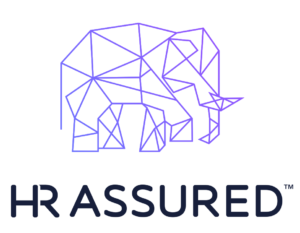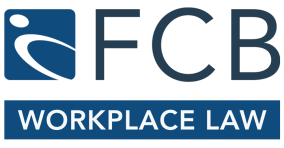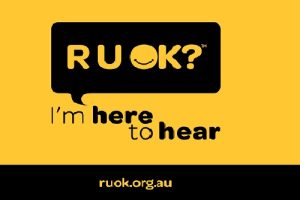Child Safe Employment Practices in Schools
June 2, 2017The safety of children must never be compromised. Schools and other institutions working with children must apply a range of HR and recruitment practices when selecting and employing staff. Simply verifying a current Working with Children Check is not good enough.
Zero tolerance
Children have a right to be safe and protected at school. Child abuse and arrangements that allow it to occur can never be tolerated. In recognition of this fundamental right, the Child Safe Standards were introduced in Victoria pursuant to Ministerial Order No. 870. Since 1 August 2016, the Standards have required Victorian schools to create and maintain child safe organisations by implementing seven key standards:
- Strategies to embed an organisational culture of child safety, including through effective leadership arrangements.
- A child safe policy or statement of commitment to child safety.
- A code of conduct that establishes clear expectations for appropriate behaviour working with children.
- Screening, supervision, training and other human resources practices that reduce the risk of child abuse by new and existing personnel.
- Processes for responding to and reporting suspected child abuse.
- Strategies to identify and reduce or remove risks of child abuse.
- Strategies to promote the participation and empowerment of children.
In the context of staff selection and recruitment, Standards 4 and 6 are of particular relevance, focussing on strategies to identify individuals who may be unsuitable to work with children, thereby reducing or removing the risks of child abuse.
Once employed by a school, new “reportable conduct” obligations will commence from 1 July 2017, regulating how schools identify, investigate and respond to child safety allegations made against employees.
Pre-employment screening
The aim of pre-employment screening in schools is to make it as difficult as possible for perpetrators to work with children. The Royal Commission into Institutional Responses to Child Sexual Abuse in its interim report warned against relying only on the mandatory Working with Children Checks. While screening of this nature can be effective in identifying known perpetrators from working with children, it does not detect perpetrators who do not have records of abuse.
Tragically, the Royal Commission heard many historical case studies where comprehensive pre-employment screening practices did not occur, and as a result unsuitable people gained employment in child-related work and went on to sexually abuse children in their care.
Background checks
Schools should critically examine written CVs and job applications for potential signs of a perpetrator. Evidence given in the Royal Commission suggested staff involved in recruitment should be alert to candidates with ‘unusual attitudes about children’, such as:
- Applicants saying they have ‘special relationships’ with children.
- In one case reported to the Royal Commission, a perpetrator had written in his CV that his career ambitions were ‘To work with kids and help them experience life, love and friendships in an environment where there are no walls or boundaries’.
- A candidate’s CV may also identify gaps in their employment history that should be explored. Where this is the case, further enquiries should be made to ascertain the reason for such gaps.
Deterrent messages in job advertisements
Job advertisements that clearly articulate the school’s strong commitment to child safety and zero tolerance towards child abuse may deter potential offenders. The advertisement should also refer to robust recruitment processes focusing on background checks, behavioural based interviewing and mandatory telephone references with past employers.
Interviews
Schools should use behavioural-based interview techniques to gain an insight into a candidate’s personal attitudes towards children and identify any concerns about professional boundaries. For example ask questions like:
- What do you enjoy about working with children?
- Can you tell us about strategies you use to build close and trusting relationships with children?
- Can you tell us about a time when it was necessary for you to comfort an upset child? What did you do to make the child feel better?
Proof of identity and verification of qualifications
It is not enough to accept a candidate’s assertions regarding their qualifications. Ensure checks are done to verify a candidate actually holds the purported qualifications and registrations. Photographic evidence should also be obtained to verify a candidate’s identity.
Reference checks
It is concerning how often proper reference checks are neglected. Schools should not rely on written references provided by a candidate. A thorough reference check should involve:
- permission to speak directly with all recent or previous employers as a condition of the recruitment process;
- questioning referees about any concerns they might have regarding the candidate’s suitability to work with children; and
- being alert to vague or evasive references – there may be an underlying historical issue the candidate is attempting to disguise.
Self-disclosure declarations
Schools are encouraged to ask job candidates to complete detailed written self-disclosure declarations, not dissimilar to pre-existing injury or illness forms many employers use in the pre-employment context. Such a declaration would require at minimum that the candidate to declare if they:
- have been subject to allegations of prior unprofessional conduct;
- been charged but not convicted of a criminal offence; or
- have been the subject of any disciplinary action or investigation relating to alleged unprofessional conduct.
The content of the self-disclosure declaration, including whether there has been a refusal to complete it, can be used when decisions are made to progress candidates to short-listing or to offer employment.
Employment contracts
For individuals offered employment, it is essential schools have in place contemporary contracts of employment including express provisions relating to child safety compliance and disciplinary consequences for non-compliance with child safe policies and inaccurate or dishonest self-disclosure declarations.


























